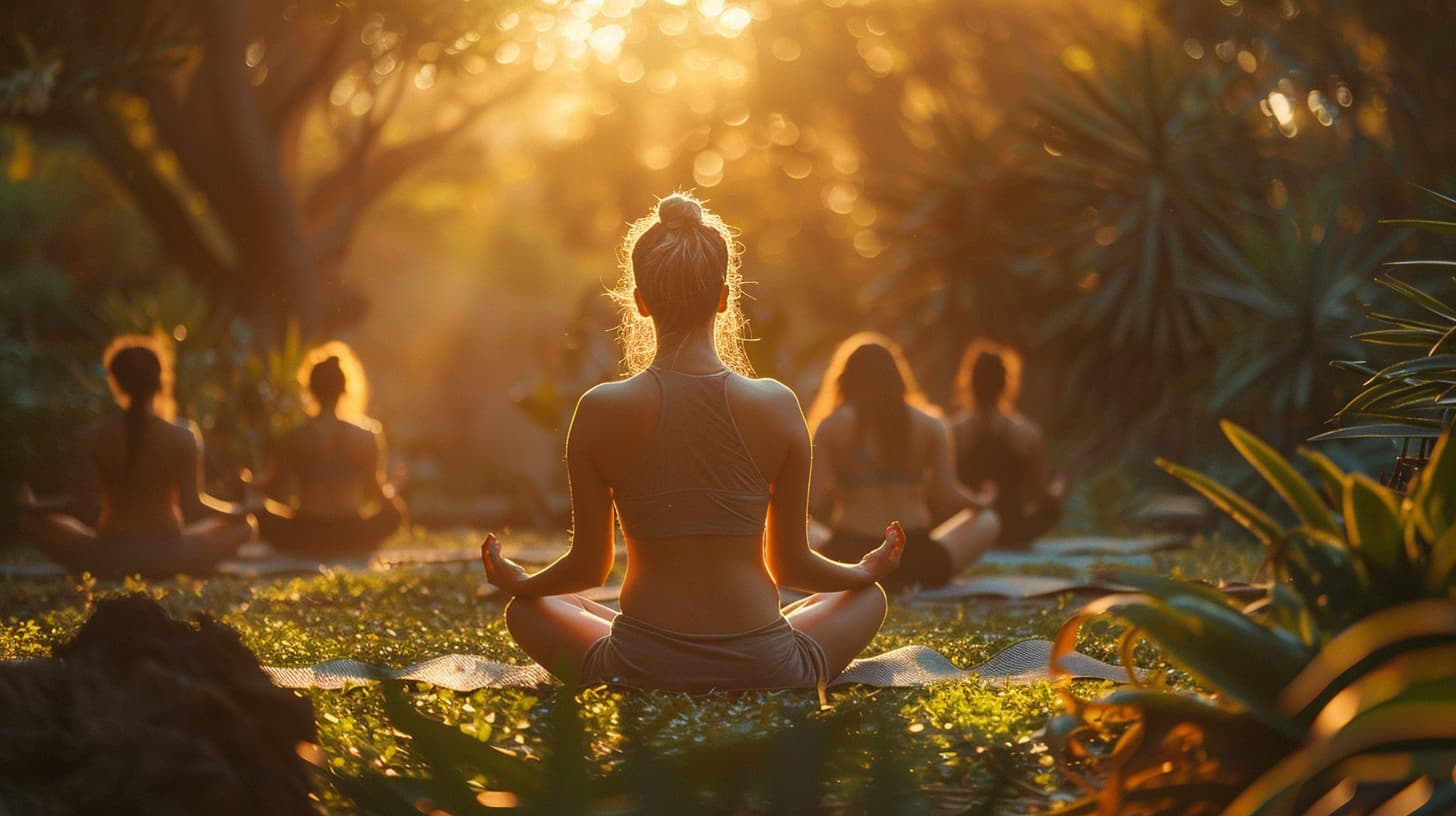By We Level Up Lawrenceville NJ | Author Inês Oliveira, MSc, PhD Candidate | Editorial Policy | Research Policy
Living with alcohol use disorder and depression can feel like being trapped in a relentless cycle, with each condition fueling the other and making recovery even more challenging.
If you or someone you care about is struggling with this difficult combination, understanding their connection is the first step toward healing.
The Complex Relationship Between Alcohol and Depression
Alcohol Use Disorder (AUD) is more than just “drinking too much”; it’s a chronic medical condition marked by an impaired ability to stop or control alcohol use despite harmful consequences. Depression, on the other hand, is characterized by persistent feelings of sadness, emptiness, and a loss of interest in activities once enjoyed.
These two conditions interact in ways that complicate recovery. Alcohol, a central nervous system depressant, can trigger or intensify depressive symptoms. Similarly, individuals experiencing depression often use alcohol to cope, looking for brief relief from emotional distress.
What many don’t realize is that alcohol worsens depression in the long run. It is like covering a deep wound with a bandage when stitches are needed. It may provide temporary relief but underneath the problem keeps getting worse.
Data from the National Epidemiologic Survey on Alcohol and Related Conditions found that people with AUD are 2.3 times more likely to have experienced major depression, in the past year, than those without drinking problems. This highlights the importance of addressing both conditions together for effective and lasting recovery.
Recognizing the Signs: When Alcohol and Depression Coexist
Symptoms of Alcohol Use Disorder
Recognizing AUD is about patterns of behavior, not just the amount someone drinks.
Some key indicators include:
- Strong cravings or urges to drink
- Difficulty cutting back or controlling drinking
- Continuing to drink despite relationship problems
- Needing more alcohol to feel the same effects (tolerance)
- Experiencing withdrawal symptoms when not drinking
- Skipping important activities due to alcohol use
Symptoms of Depression
Depression manifests differently in everyone, but common signs include:
- Persistent feelings of sadness or emptiness
- Diminished interest in activities once enjoyed
- Changes in appetite and body weight
- Disruptions in sleep patterns, such as insomnia or excessive sleeping
- Persistent fatigue or lack of energy
- Feelings of guilt or worthlessness
- Difficulty in decision-making or concentration
- Frequent thoughts about death or suicide
Skip to:
Learn more:
When these symptoms occur alongside alcohol misuse, they are often misattributed. Depression is often a separate condition that requires specialized treatment and is not merely a result of drinking.
Causes and Risk Factors
Both conditions share overlapping risk factors:
- Genetic predisposition (family history of either condition)
- Trauma or adverse childhood experiences
- Chronic stress or major life changes
- Certain personality traits, such as neuroticism (tendency to experience negative effects)
- Environmental factors like poverty or lack of social support
The effects of this dual struggle extend beyond mental health. Physical health declines as liver function, cardiovascular health, and immune response become compromised. Relationships strain under the weight of unpredictable behavior and emotional distance. Career and financial stability often suffer as well.

Perhaps most concerning, the combination of alcohol and depression significantly increases suicide risk. This serves as an important reminder of why proper treatment is essential and literally life-saving.

Get Your Life Back
Find Hope & Recovery. Get Safe Comfortable Detox, Addiction Rehab & Mental Health Dual Diagnosis High-Quality Care at the We Level Up Treatment Centers Network.
Hotline (877) 378-4154Co-Occurring Disorders: Why They Require Specialized Care
When someone experiences both a substance use disorder and a mental health condition at the same time, healthcare professionals refer to this as “co-occurring disorders” or “dual diagnosis”.
It’s more common than people might expect. In fact, according to the 2022 National Survey on Drug Use and Health, by SAMHSA, approximately 21.5 million adults in the U.S. have co-occurring disorders.
Besides depression, alcohol use disorder is commonly seen alongside:
- Anxiety disorders
- Post-traumatic stress disorder (PTSD)
- Bipolar disorder
- Attention-deficit/hyperactivity disorder (ADHD)
The challenge with co-occurring disorders is that they’re interconnected. Treating one without addressing the other often leads to relapse. Traditional treatment approaches that adopt a sequential model, where one disorder is treated first, and the other is addressed later, often result in disappointing outcomes.
At We Level Up NJ, a comprehensive assessment forms the foundation of effective treatment. Our clinical team thoroughly evaluates both conditions to develop a personalized plan that addresses the full spectrum of symptoms and underlying causes.
Alcohol And Depression Statistics
After a disastrous breakup, a job loss, or another significant life hardship, some claim they turn to alcohol to “drown their sorrows.” And yes, a few beers or glasses of wine can appear to calm you and ease anxiety since alcohol makes you sleepy.
63.8%
There are high prevalence rates (63.8%) of major depression among alcohol-dependent persons.
Source: NIH
3.7X
A major depressive disorder is 3.7 times more common in people with alcohol dependence according to the DSM-IV.
Source: NIH
16%–68%
There is a 16%–68% prevalence rate for the coexistence of alcohol use disorders and depression, which has been validated by numerous studies.
Source: NIH
Comfortable Facilities & Amenities
High-Quality Addiction & Mental Health Rehabilitation Treatment
Rehab Centers TourRenowned Addiction Centers. Serene Private Facilities. Inpatient rehab programs vary.
Addiction Helpline (877) 378-4154Proven recovery success experience, backed by a Team w/ History of:
15+
Years of Unified Experience
100s
5-Star Reviews Across Our Centers
10K
Recovery Success Stories Across Our Network
- Low Patient to Therapist Ratio
- Onsite Medical Detox Center
- Comprehensive Dual-Diagnosis Treatment
- Complimentary Family & Alumni Programs
- Coaching, Recovery & Personal Development Events
Comprehensive Treatment Approaches at We Level Up NJ
Our integrated treatment model ensures that both alcohol use disorder and depression receive simultaneous, coordinated care. Here’s how our approach works:
Inpatient Rehabilitation
For many facing co-occurring alcohol use disorder and depression, inpatient rehabilitation provides a structured environment to support the first stage of recovery. This level of care includes:
- Medical Detoxification: Supervised withdrawal from alcohol with medications to manage symptoms and ensure safety.
- 24/7 Medical Supervision: Continuous monitoring by healthcare professionals.
- Immersive Therapeutic Environment: A safe space, free from triggers and stressors that contribute to both conditions.
- Structured Daily Schedule: A consistent routine that promotes healing, stability, and healthy habits.

Comprehensive Dual-Diagnosis Treatment
Our specialized dual diagnosis program integrates addiction and mental health treatment, addressing depression and other co-occurring conditions.
- Integrated Care: Coordinating addiction specialists and mental health professionals to assess and treat both conditions holistically.
- Medication Management: Prescribing antidepressants and other psychiatric medications when appropriate.
- Trauma-Informed Approach: Recognizing and addressing underlying trauma that may fuel both conditions.
Psychotherapeutic approaches include:
- Cognitive Behavioral Therapy (CBT): Identifying and reframing negative thought patterns contributing to both depression and alcohol use.
- Dialectical Behavior Therapy (DBT): Developing skills in distress tolerance, emotion regulation, and mindfulness.
- EMDR Therapy: Processing trauma through Eye Movement Desensitization and Reprocessing.
- Acceptance and Commitment Therapy (ACT): Learning to accept difficult feelings while committing to positive change.
- Cognitive Processing Therapy (CPT): Addressing trauma-related depression.
Behavioral approaches include:
- Motivational Interviewing: Enhancing internal motivation to change.
- Contingency Management: Providing positive reinforcement for healthy behaviors.
Additional Supportive Programs
Recovery extends beyond the individual to include:
- Family Therapy: Healing relationships impacted by addiction and depression.
- Nutritional Counseling: Providing guidance on diet and nutrition to support overall well-being during recovery.
- Relapse Prevention: Developing strategies to maintain sobriety and mental health.
- Aftercare Planning: Providing ongoing support after completing intensive treatment.
World-class, Accredited, 5-Star Reviewed, Effective Addiction & Mental Health Programs. Complete Behavioral Health Inpatient Rehab, Detox plus Co-occuring Disorders Therapy.
CALL (877) 378-4154End the Addiction Pain. End the Emotional Rollercoaster. Get Your Life Back. Start Drug, Alcohol & Dual Diagnosis Mental Health Treatment Now. Get Free No-obligation Guidance by Substance Abuse Specialists Who Understand Addiction & Mental Health Recovery & Know How to Help.
The We Level Up NJ Difference
What sets our approach apart is our commitment to treating the whole person, not just isolated symptoms or behaviors.
Holistic Approach
We recognize that lasting recovery involves healing mind, body, and spirit:
- Physical Wellness: Exercise programs, nutritional guidance, and sleep hygiene.
- Emotional Processing: Art therapy, music therapy, and experiential approaches.
- Spiritual Connection: Mindfulness practices and opportunities for spiritual exploration (non-religious).
- Social Reintegration: Building communication skills and healthy relationships.
We help patients rebuild their entire lives, not only on maintaining their sobriety and balanced mood.
From learning how to eat well again to rebuilding trust with family, every aspect of healing is addressed.
Supportive Community
Recovery thrives in connection:
- Peer Support Groups: Sharing experiences with others on similar journeys.
Alumni Network: Maintaining community after completing treatment. - Mentorship Opportunities: Giving back by helping others new to recovery.
- Family Involvement: Including loved ones in the healing process.
The power of community is undeniable. Alcohol use and depression can lead to isolation, but learning to connect with others who understand your struggles, without judgment, might change everything.
Evidence-Based Therapies
Our treatment modalities are grounded in scientific research and clinical excellence, forming an evidence-based, comprehensive approach. This includes pharmacological treatment, psychological support, and behavioral interventions, all delivered by a multidisciplinary team specializing in AUD and co-occurring disorders.
Expert, Compassionate Staff
Our team combines professional expertise with personal compassion:
- Board-Certified Addiction Psychiatrists: Specializing in co-occurring disorders.
- Licensed Therapists: Trained in multiple evidence-based modalities.
- Experienced Nursing Staff: Providing 24/7 medical support.
- Recovery Support Specialists: Many with lived experience in recovery.

Get Help. Get Better. Get Your Life Back.
Searching for Accredited Drug & Alcohol Rehab Centers Near You? Or Mental Health Support?
Even if you have failed previously, relapsed, or are in a difficult crisis, we stand ready to support you. Our trusted behavioral health specialists will not give up on you. Call us when you feel ready or want someone to speak to about therapy alternatives to change your life. Even if we cannot assist you, we will lead you wherever you can get support. There is no obligation. Call our hotline today.
FREE Addiction Hotline – Call 24/7Your Journey to Recovery Starts Here
Living with alcohol use disorder and depression doesn’t have to define your life. Complete and lasting recovery that addresses both conditions is achievable with the right support.
At We Level Up NJ, we have helped thousands break free from the cycle of alcohol dependence and depression. Our comprehensive approach, evidence-based treatments, and compassionate team provide the foundation for lasting change.
Don’t wait for “rock bottom” or for things to worsen. Reach out today at 877-378-4154 or visit welevelupnj.com to connect with our admissions team and learn how we can help.
Recovery is about stopping drinking and managing depression symptoms, but it’s also about reclaiming your life, rebuilding relationships, and rediscovering joy and purpose. This journey can start today.
Remember: You are not alone in this struggle, and you don’t have to face it alone. Hope and healing are within reach.
Frequently Asked Questions
Do you have to pay for alcohol and depression dual diagnosis treatment in NJ?
There are various payment options to make care more accessible. Most private insurance plans cover polysubstance abuse treatment, though coverage varies by provider and plan. We Level Up NJ works with many major insurance companies and provides verification of benefits to determine your coverage.
For those without insurance, payment plans, sliding scale options, and financing may be available. Our admissions team is here to guide you through these options to help you find the most affordable path to treatment.
How long does alcohol and depression dual diagnosis treatment last in New Jersey?
The duration of treatment varies based on individual needs, the severity of the conditions, and response to treatment.
In general, inpatient programs typically last between 28 and 90 days, with many individuals finding 60-90 days most effective for dual diagnosis. Aftercare and ongoing therapy often continue for months or even years.
Remember, recovery is a journey, not a destination—the goal is progress, not perfection.
Where in New Jersey can you find alcohol and depression dual diagnosis addiction rehab?
We Level Up NJ offers comprehensive dual diagnosis treatment in Lawrenceville, New Jersey, serving residents throughout the state and beyond. Our facility provides the full continuum of care necessary for the effective treatment of co-occurring alcohol use disorder and depression.
When researching options, look for facilities specifically advertising dual diagnosis capabilities, as not all addiction treatment centers are equipped to address both substance use disorders and complex mental health conditions.
The right program should include psychiatrists on staff, offer medication management, and use integrated treatment approaches that address both conditions together, rather than treating them separately.
Experience Transformative Recovery at the We Level Up Treatment Center.
See our authentic success stories. Get inspired. Get the help you deserve.



Start a New Life
Begin with a free call to an addiction & behavioral health treatment advisor. Learn more about our dual-diagnosis programs. The We Level Up treatment center network delivers various recovery programs at each treatment facility. Call to learn more.
- Personalized Care
- Caring Accountable Staff
- Comfortable Amenities
- Licensed & Accredited
- Renowned w/ 5-Star Reviews





